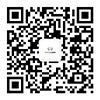I. Definition of AFR:
AFR stands for Advance Filing Rules. The meaning is: for containerized goods loaded on ships that plan to enter Japanese ports, the shipping company or NVOCC must, in principle, pre-declare the manifest information of containerized goods to the Japanese Customs in the form of electronic data 24 hours before the ship leaves the overseas loading port, that is, the pre-declaration system.
Second, the meaning of AFR:
The implementation of AFR regulations is to prevent some high-risk goods from entering the Japanese market, with this system, the Japanese Customs can promptly notify the relevant shipping parties to recommend abandoning the shipment. If the manifest information is incorrect, the shipping party will be required to transfer further information or correct the information.
Third, the impact of AFR:
The impact of AFR is also the core content of this article. Here, we will explain the impact of AFR on Japanese shipping from two aspects. Before we talk about impact, we always talk about declaration, so what exactly do we have to declare? Then we give the following specific content to declare:
1) The forwarder's bill of lading (House B/L) associated with the ocean bill of Lading (Master B/L);
2) Full name and address of shipper and recipient (including postal code);
3) indicating the full name and address (including postal code) of the notifying party of the bill of lading;
4) Container number;
5) Seal number;
6) Accurate product name description;
7) 6-digit customs code for each item;
8) The UN Code for dangerous Goods in the International Maritime Dangerous Goods Code (IMDG Code)
This detailed declaration is provided by OOCL Cargopping and we hope it will be helpful to you. Shanghai Wosh International Freight Forwarding Co., Ltd. and OOCL shipping company have a close, long-term and stable cooperation, so please rest assured to understand! As mentioned above, we begin to elaborate the impact of this AFR from two aspects, which are also the main content of everyone's concern:
A) The accuracy of the feeding requirements is more stringent:
From the definition of AFR, we can see that the Japanese customs requires the shipping company to have 24 hours, so we, as the booking company and the shipper, are more advanced than 24 hours, that is to say, the shipping company requires us to provide one-time replenishment 48 hours in advance, and the replenishment should include the above eight contents.
B) Increase in shipping costs to the shipper:
The implementation of AFR has significantly increased the cost of maritime transportation in Japan.
First, the shipping company needs to levy an AFR pre-declaration manifest fee of USD25 per BILL, which will undoubtedly be paid by the shipper. If there is an error in the supply of supplementary materials and it needs to be modified, then the fee for changing the AFR declaration manifest also needs to be levied, and the standard for each modification is USD50/ time.
Secondly, before the implementation of AFR, Japanese shipping can provide supplementary materials to the shipping company on the day of customs closure. In this way, we can replenish the materials after loading the container to ensure the accuracy and correctness of the replenishment, and now we can't do this. A simple example to illustrate this process and the increase in logistics and transportation costs (see below) :
Third, commodity CODE HS CODE needs to be confirmed with the consignee in advance; In order to avoid the discrepancy between the product code provided by the factory and the code used by the consignee for customs clearance, resulting in customs clearance problems.


